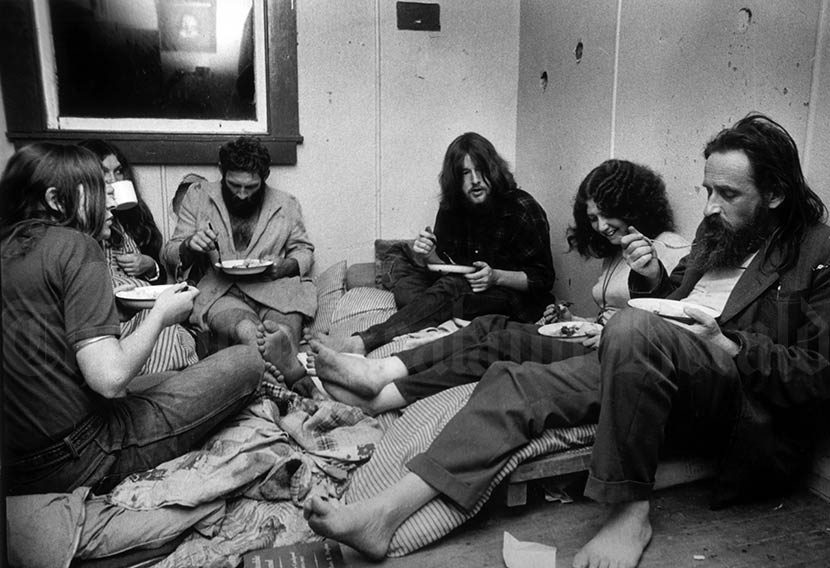
Poet James K. Baxter (right) and other Jerusalem commune residents tuck into a feed in December 1970. Baxter founded the community at the small Māori settlement of Jerusalem on the Whanganui River, in the hope of learning 'from the Māori side of the fence' and incorporating Māori spiritual and community values. He referred to the residents – who included alcoholics, drug addicts and people with mental health problems – as 'ngā mōkai', which he translated as 'the fatherless'. A huge tangi was held for Baxter at Jerusalem after his death in October 1972, and he is buried at the settlement on tribal land.
In Jerusalem daybook (1971) Baxter described his 'cast-iron programme for communal activity, at Jerusalem, in crash pads, or in people's homes':
Feed the hungry;
Give drink to the thirsty;
Give clothes to those who lack them;
Give hospitality to strangers;
Look after the sick;
Bail people out of jail, visit them in jail, and look after them when they come out of jail;
Go to neighbours' funerals;
Tell other ignorant people what you in your ignorance think you know;
Help the doubtful to clarify their minds and make their own decisions;
Console the sad;
Reprove sinners, but gently, brother, gently;
Forgive what seems to be harm done to yourself;
Put up with difficult people;
Pray for whatever has life, including the spirits of the dead.
(James K. Baxter, Jerusalem daybook. Wellington: Price Milburn, 1971, pp. 11–12.)
Using this item
Permission of the New Zealand Herald must be obtained before any re-use of this image.








Add new comment